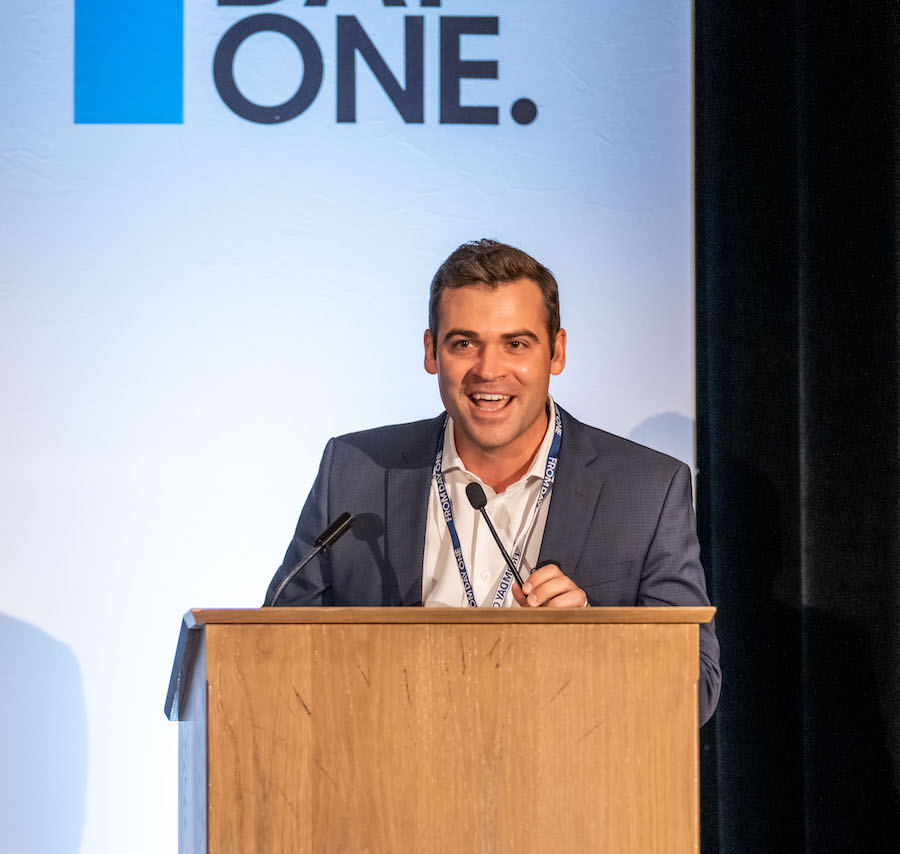Putting Talent Where it's Needed: Companies Search Internally to Find Ways to Close Skill Gaps


When USAA’s Head of Talent Marketplace Lya Icaza reflects on her early career, she remembers being advised not to mention her family or children in the workplace.
Icaza and a panel of four other female leaders used their personal experiences and business knowledge to highlight how companies can better foster career growth among employees during a From Day One conference last month in Austin, Texas.
“[In previous workplaces,] if I had gone to my leader and said, ‘Hey, I think I want to go work for somebody else,’ then [I’d be] terminated tomorrow,” said Ramona Arora, chief learning officer and vice president of global talent and development at Dell Technologies. “That talent-hoarding mentality, that's part of a culture.”
A culture that all five women were happy to report is becoming increasingly scarce in the 21st century, thanks to the advent of more flexible work schedules and a drive among managers to keep productive employees happy.
Focusing on Internal Mobility
While the U.S. economy experiences a slowdown in hiring and increased reorganizations within companies, especially in the technology sector, NXP Semiconductors Senior Vice President for Talent and Culture, Elsa Zambrano said her company is increasingly focusing on internal mobility.
“Development can start with where you're at,” Zambrano said. “You can change a job, and you can do it within the company.”
Zambrano said NXP, a company of about 30,000 employees, recently began measuring internal mobility and set a goal to reach 30%. “We're just under 20% — it's too low. But we started at 14%, so we're making good progress on that,” she said.
Icaza said USAA is also beginning to focus more on internal mobility and the intentional upward, lateral and downward movement of employees.
“We want to be able to recognize that careers have seasons,” she said. “Depending on where you are in life, not just your professional life but in your personal life, you may want to change, and that could mean a demotion. Careers aren't just upward.”
Arora shared that buying labor is a demanding task for technology companies in the current economic environment, so companies like Dell have turned inward to find talent opportunities.
“It's our talent. So how do we move people gracefully, and also intelligently, across the company?” she said.
The Tech Side
Rebecca Warren, who oversees customer success for Eightfold, a company that provides artificial intelligence talent acquisition and management services, said the importance of AI in helping to boost skill sets among employees can be invaluable to many organizations.

“We look at internal employees using a career hub model so they can say, ‘I want to do this so I can bolster my skills,’” she said.
AI can also impact the hiring process, with some companies opting to analyze skill sets instead of the traditional resume and cover letter. “When you focus on what skills are needed or what someone's potential looks like, it's a completely different conversation compared to looking at a resume and thinking that's all someone can do,” Warren said.
Arora said technology plays a large part in supporting a company's philosophy and culture, and AI is essential to achieving success. “I think this is an opportunity for HR,” she said. “You really need to lean into technical analysis. You have to lean into your technology teams to build that technology infrastructure and find out how that's going to support the philosophy and the culture that you're wanting to drive. We need technology. We need AI.”
Achieving Personal Freedom
Warren’s husband left his career as a talent acquisition specialist in search of an opportunity that would permit him to work 9 a.m. to 5 p.m. each day and not deal with stressors outside of the workplace.
“He was very transparent, and from the organization's side, you have to be really clear about what a job like that might look like,” Warren said. “He basically said, ‘I want to go into leadership, do my job, and go home.’”
Warren said he was able to find the job, even if decades ago, that would have been a nearly impossible task. She said the company created a remote work policy for her husband to work from home to provide even more flexibility for the valued employee.
Those opportunities, Icaza said, in some cases allow for employees to work part-time jobs, which can help with advancing a skillset to benefit the full-time employer.
Mel Faxon, COO & Co-Founder of Hey Mirza, said her company is dedicated to helping employers retain employees by offsetting the cost of childcare. “I spent the bulk of my career in startups across the U.S. and Europe. If you don't have care, you can't go to work, and you can't get paid.”
Faxon said she remembers being shocked at the announcement that one of her mentors at a previous job was quitting because she “couldn't be a mom and work here.”
“Mirza aims to solve that problem," Faxon said. About 61% of households in America are dual-income families, a number that has doubled in the last 50 years, she said.
“If you think about the gender pay gap, when you control for everything except kids, it is 98 cents to a dollar—having kids is really where you create the gap,” she said. “That's mostly attributed to women, but any stay-at-home parent and someone taking time out of the workforce is affected.”
Tim Zyla is the managing editor of a community newspaper in Pennsylvania and has a strong interest in business and finance.
The From Day One Newsletter is a monthly roundup of articles, features, and editorials on innovative ways for companies to forge stronger relationships with their employees, customers, and communities.